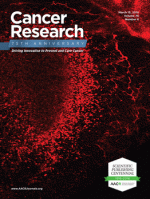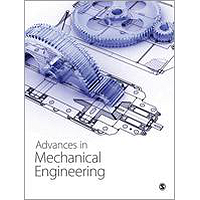 When a researcher submitted a manuscript to a journal about multimedia tools, she was frustrated to wait 13 months for the journal to make a decision — only to have it reject the paper outright. So imagine how she felt when, days after the paper was rejected, she saw the journal had published a plagiarized version of the paper by a group of different authors.
When a researcher submitted a manuscript to a journal about multimedia tools, she was frustrated to wait 13 months for the journal to make a decision — only to have it reject the paper outright. So imagine how she felt when, days after the paper was rejected, she saw the journal had published a plagiarized version of the paper by a group of different authors.
Clearly, something went very awry here — especially since the journal, Multimedia Tools and Applications (MTAP), has retracted three papers by the same group of authors, all of which plagiarized from unpublished manuscripts by other people.
Of course, one possibility is that an author was a peer reviewer of the manuscripts, and stole the unpublished material — something that unfortunately does happen.
There are four authors in common to all three manuscripts, but only one — corresponding author Chao Xiong of the Changzhou Institute of Technology in China — has responded to any queries from MTAP, according to the retraction notices. As the notices state, Xiong agrees with one of the the retractions, but not the other two. (All of the papers cover similar topics and were submitted around the same time, so it’s unclear why Xiong didn’t object to one retraction.)
Here’s a sample notice, for “Image-based reversible data hiding algorithm toward big multimedia data:”
Continue reading A journal waited 13 months to reject a submission. Days later, it published a plagiarized version by different authors
 This one gave us pause: A journal recently removed a 1992 paper, providing only a terse explanation — “The above article has been removed at the author’s request.”
This one gave us pause: A journal recently removed a 1992 paper, providing only a terse explanation — “The above article has been removed at the author’s request.”  The authors of a 2018 paper on how noisy distractions disrupt memory are retracting the article after finding a flaw in their study.
The authors of a 2018 paper on how noisy distractions disrupt memory are retracting the article after finding a flaw in their study.  When a researcher submitted a manuscript to a journal about multimedia tools, she was frustrated to wait 13 months for the journal to make a decision — only to have it reject the paper outright. So imagine how she felt when, days after the paper was rejected, she saw the journal had published a plagiarized version of the paper by a group of different authors.
When a researcher submitted a manuscript to a journal about multimedia tools, she was frustrated to wait 13 months for the journal to make a decision — only to have it reject the paper outright. So imagine how she felt when, days after the paper was rejected, she saw the journal had published a plagiarized version of the paper by a group of different authors. Less than a year after the entire editorial board of a public health journal resigned in protest of moves by publisher Taylor & Francis, the publisher has decided to call it quits for the journal, Retraction Watch has learned.
Less than a year after the entire editorial board of a public health journal resigned in protest of moves by publisher Taylor & Francis, the publisher has decided to call it quits for the journal, Retraction Watch has learned. The journal
The journal  How long should a retraction take?
How long should a retraction take? Many publishers have been duped by fake peer reviews, which have brought down more than 600 papers to date. But some continue to get fooled.
Many publishers have been duped by fake peer reviews, which have brought down more than 600 papers to date. But some continue to get fooled. Researchers have retracted a 2015 Nature paper about the molecular underpinnings of immune function after discovering they could not replicate key parts of the results.
Researchers have retracted a 2015 Nature paper about the molecular underpinnings of immune function after discovering they could not replicate key parts of the results. Barislav Momčilović thinks that iodine status is — after iron deficiency — the “main public health” issue in the world today. So when he figured out what he believed was the best way to test levels of the mineral, he was determined to get the message out.
Barislav Momčilović thinks that iodine status is — after iron deficiency — the “main public health” issue in the world today. So when he figured out what he believed was the best way to test levels of the mineral, he was determined to get the message out. Last year,
Last year,